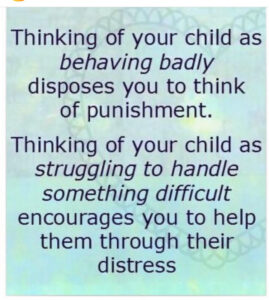If you gathered 5 parents in a room who all adopted children who experienced complex early trauma, they would each share almost identical challenging scenarios about their children. Tantrums are the most common issue, but not far behind are clingy children, and as these children grow, lying becomes the largest concern. The problem is traditional parenting does not work for these kids. As much as you may want to use time-out and punishment to teach your children, you will only alienate them more. These kids have a brain that is different than your neuro-typical ones. Read on for ideas on how to build a new parenting toolkit to encourage a peaceful home and to form a healing connection with your “hard-to-parent” child.
Tantrums
 All kids tantrum. But your child’s tantrums just are different. They are more intense. They last longer. It feels like they explode out of nowhere: that they seem to go from zero to sixty in a millisecond. The thing is your early complex trauma adopted child’s nervous system is different. It is wired to protect: always looking out for danger: always ready to flee, sometimes, fight, and sometimes completely just shut down. Their huge reactions come from a place of perceived fear that is not based in their current reality. Neither their brain nor body knows they are safe now. And here’s a doozy of a fact, your child was never taught to calm themselves. It’s a complicated dynamic, but their parent more than likely wasn’t there for the crucial co-regulation lessons that needs to occur when children are babies. Thus they have no clue how to calm down. This creates the perfect storm. That’s why tantrums are the #1 complaint about adopted children who come from hard places.
All kids tantrum. But your child’s tantrums just are different. They are more intense. They last longer. It feels like they explode out of nowhere: that they seem to go from zero to sixty in a millisecond. The thing is your early complex trauma adopted child’s nervous system is different. It is wired to protect: always looking out for danger: always ready to flee, sometimes, fight, and sometimes completely just shut down. Their huge reactions come from a place of perceived fear that is not based in their current reality. Neither their brain nor body knows they are safe now. And here’s a doozy of a fact, your child was never taught to calm themselves. It’s a complicated dynamic, but their parent more than likely wasn’t there for the crucial co-regulation lessons that needs to occur when children are babies. Thus they have no clue how to calm down. This creates the perfect storm. That’s why tantrums are the #1 complaint about adopted children who come from hard places.
What To Do
Hooray, there are techniques to help. The most important is to predict and prevent. In other words, does your child really need to be involved in a certain activity? Does that activity or event seem to stress them out and cause more tantrums? Take this non-mandatory obligation out of their life. Create a calm and predictable schedule. Try to minimize any unnecessary stress.
Lower Expectations
Next lower your expectations. Even if your daughter is chronologically 12-years-old, my bet is in some ways she is developmentally much younger. The best way to help her to build regulation skills is to lower your expectations. This is hard and painful for so many parents. Even for me. But it works. I promise. Next you need to model how to regulate your emotions; in other words, teach your child the skills they are lacking. Never do it when they’re upset. In fact, never ever talk to your child when they are in the midst of a meltdown. Brain studies reveal that they literally cannot hear you and it makes them more dysregulated.
Narrate Self-Regulation
 Once they are calm, narrate your own self-regulation techniques. Say you are in the car and a driver pulls out in front of you in an unsafe manner. Name your feelings of anger and fear at that moment. Talk about how your palms are all of a sudden sweaty, your face is red, and your heart is pounding. Teach your kids to learn the signs in their own bodies when they are getting upset. Continue to narrate by saying out loud how you are going to take 10 slow deep breaths to try to calm your body. You need to basically do this many times a day at first: you will be stunned at how powerful this type of modeling is. Of course getting a therapist involved to work alongside you with your child is always a good idea.
Once they are calm, narrate your own self-regulation techniques. Say you are in the car and a driver pulls out in front of you in an unsafe manner. Name your feelings of anger and fear at that moment. Talk about how your palms are all of a sudden sweaty, your face is red, and your heart is pounding. Teach your kids to learn the signs in their own bodies when they are getting upset. Continue to narrate by saying out loud how you are going to take 10 slow deep breaths to try to calm your body. You need to basically do this many times a day at first: you will be stunned at how powerful this type of modeling is. Of course getting a therapist involved to work alongside you with your child is always a good idea.
Need for Constant Supervision
You know, the clingy child. If you have one of these kids, you are shaking your head yes vigorously. They follow you around all day long no matter their age. They are constantly needing something from you. If they are on their own, they almost always get into trouble so you supervise them at all times. These children are exhausting, especially if you have multiple children.
Longview
The parenting technique here really is to take the longview: invest the time now for big payoffs later. In other words, your child is so insecure and disorganized that they need to really know you love them and need you to contain them physically, emotionally, and psychologically. It is a daunting task. Here’s how it looks: You initiate “Time-In” with this child throughout the day. Bring them close. Let them help you with your household duties. Praise them as they learn to make better choices. Keep telling them you adore them when you can. Keep the criticism to the minimum. Your child wants to do well; they literally do not know how. Eventually set them up for success with 5 minute increments, and then 10 minutes, where they don’t need to constantly be by your side. Again praise them for their progress.
Environment
 Make sure the environment is one that promotes their successful independence. In other words, move things they can break, fiddle with, and anything that could create conflict. You are essentially childproofing your home for this hard-to-parent child. It won’t last forever. Again, try to lower your expectations. Your 8-year-old son may only really be 4 developmentally. If your expectations are for an 8-year-old, he will constantly fail. If you lower them to the right age, he will have success, learn to trust you, and gain independence skills that you are teaching him. I know all of this is overwhelming and will take time on the front end. Ask yourself if the parenting strategies you have been using are working and there you have the answer.
Make sure the environment is one that promotes their successful independence. In other words, move things they can break, fiddle with, and anything that could create conflict. You are essentially childproofing your home for this hard-to-parent child. It won’t last forever. Again, try to lower your expectations. Your 8-year-old son may only really be 4 developmentally. If your expectations are for an 8-year-old, he will constantly fail. If you lower them to the right age, he will have success, learn to trust you, and gain independence skills that you are teaching him. I know all of this is overwhelming and will take time on the front end. Ask yourself if the parenting strategies you have been using are working and there you have the answer.
Lying
This is every parent’s nightmare. If your child lies to you, you cannot but wonder what will happen to them when they are grown? Your protective parent brain imagines their future in jail. Moreover no one values lying: in fact, to lie is in direct violation with our values system. As a parent, lying is a tough pill to swallow.
Why Lie?
The best way to manage this behavior is to first understand why our kids lie. Keep in mind that regardless of their complex early trauma, all tweens and teens lie. I’m not going to get into why this is a necessary developmental task, but just know, it is normal. The adopted child lies for different reasons as well. They lie because they have deep internalized shame. They feel unlovable. They wonder what is wrong with them. They literally hate themselves. You will never hear them say these words. They will outwardly show the opposite. But research proves all of this is true. And get this: the lie is a cover-up so you never know these ugly truths about them. All the stuff they went through when they were little, all the hurt and loss and neglect, creates the perfect storm for a gifted liar. Lying helps them avoid feeling bad when they didn’t make the right choice. Lying is a shame response. Lying helps them avoid the feeling that they do not matter. Lying is all about survival and protecting their little hurt self.
Prevention
Besides understanding why they live, what else can you do? Instead of punishing them for lying, set up scenarios ahead of time that will prevent the lie. For example, instead of saying “have you done your homework”, say “let’s sit down and start your homework together.” Sometimes our kids lie because we ask them a question and expect an immediate response. Some of our children have a slower processing speed and need more time. Next time you ask your child something, try “let me know your answer in 15 minutes.” There are many more ways to help with lying in this video, so check it out.





